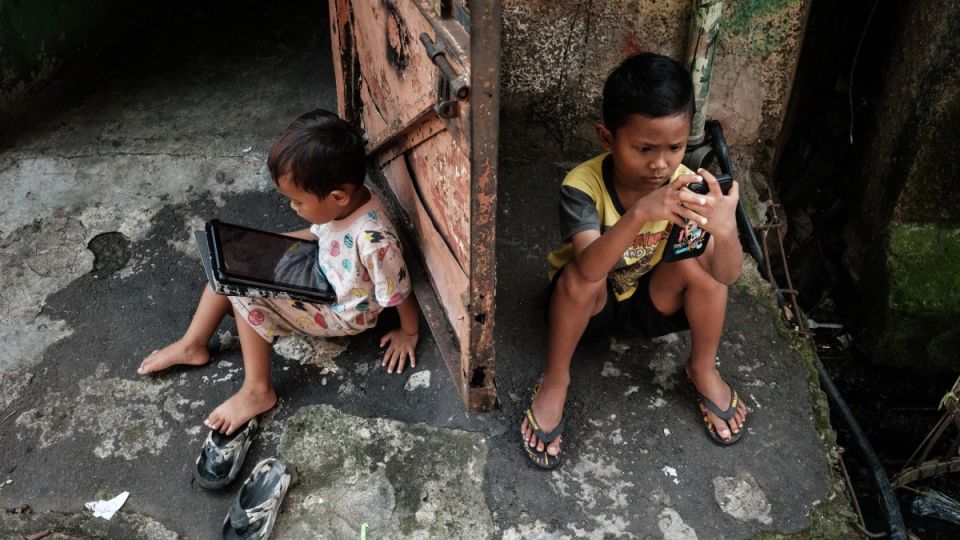June 2, 2025
JAKARTA – The Health Ministry has reported a decline in the national stunting rate among children, from 21.5 percent in 2023 to 19.8 percent last year, marking progress toward reaching President Prabowo Subianto’s 14 percent target although experts warn substantial efforts are still needed to maintain progress.
The updated figure was released earlier this week during the launching of the latest National Nutritional Status Survey (SSGI), which collected data from approximately 345,000 households with infants in 2024.
Although the 19.8 percent prevalence is 0.3 percentage points lower than the 2024 target set by the National Development Planning Agency (Bappenas), it still represents an estimated 4.48 million newborns and infants affected by stunting, including around 925,000 new cases last year.
“If 4.48 million children today have below-average intellectual potential because of stunting and malnutrition, it would be a tremendous loss for Indonesia,” Health Minister Budi Gunadi Sadikin said during the launch event, Monday.
To accelerate progress, Budi urged health workers to intensify efforts under the national stunting prevention strategy. The government aims to reduce prevalence further to 18.8 percent by the end of this year, and ultimately reach the 14.2 percent target by 2029.
Read also: Indonesia launches ambitious free-meal program to combat stunting
The ministry’s strategy focuses on six high-priority provinces, which collectively account for over half of the country’s stunting cases. They are Banten, West Java, Central Java, East Java, North Sumatra and East Nusa Tenggara.
“If we can slash down stunting by 10 percent in each of these provinces, we could lower the national rate by four to five percentage points,” Budi added.
He further emphasized the importance of early intervention, urging health workers across the six priority provinces to take proactive measures, including screening pregnant women for undernutrition by measuring arm circumference and hemoglobin (Hb) levels and providing iron and other micronutrient supplements as needed.
These efforts are aimed at improving maternal health and nutrition, as babies born to malnourished mothers are at the highest risk of stunting.
“Most stunting cases begin at birth. That is why our focus must be on the mother, we should not wait until the baby is born. Mothers must not experience malnutrition,” said the minister.
While the 2024 SSGI offers a snapshot of stunting prevalence nationwide, observers caution that it may not fully reflect the reality on the ground, as its survey-based methodology and underreporting of cases can lead to gaps in accuracy.
Holistic approach
Diah Saminarsih of the Center for Indonesia Strategic Development Initiatives (CISDI) said the government’s stunting strategy must pay more attention to women’s health well before pregnancy, especially during adolescence when reproductive maturity begins.
“This is when many girls start adopting unhealthy eating habits and restrictive diets to conform to body image standards. By the time they become pregnant, many already suffer from poor nutritional status,” she said on Wednesday.
Rather than distributing supplements to all women of reproductive age, Diah suggested a more cost-effective and systemic solution, such as by imposing excise taxes on ultra-processed foods and using the revenue to improve access to nutritious, affordable food. This would benefit not only women but the broader population.
She also stressed the need for stronger policy responses to child marriage and births outside of marriage. These children face a higher risk of stunting, yet they are often overlooked in public health strategies.
Read also: Parents’ ability to raise children key to preventing stunting
Public nutritionist Tan Shot Yen pointed out another critical gap in Indonesia’s anti-stunting efforts: the widespread lack of parental understanding regarding healthy complementary feeding, the introduction of solid foods alongside breast milk, typically starting at six months of age.
“Complementary feeding often mirrors parents’ diets. Many young parents consume unhealthy, processed foods like instant noodles and, misled by misinformation on social media, start feeding infants processed milk and packaged foods, which only exacerbates stunting,” she said on Wednesday. “The government needs to address this knowledge gap”.
Tan called on the government to strengthen integrated health posts (Posyandu) by retraining their personnel and equipping them with the resources needed to deliver essential services to mothers and children.
“Posyandu are key to fighting stunting, but many are run by untrained people and exploited by businesses pushing products like cheap biscuits and processed meats under the guise of donations,” she added


